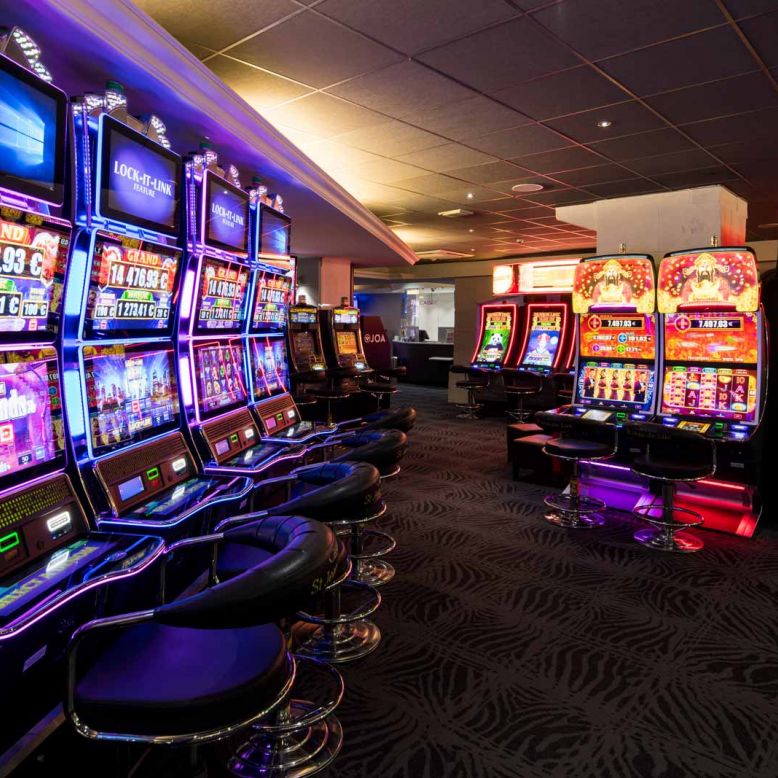
Gambling games have long captured the interest of humans around the planet, becoming an integral part of both leisure and culture. From the sparkling lights of the Vegas Strip to the immersive experience of virtual casinos, these games evoke excitement, risk, and sometimes even a sense of sentimentality. They are not just simply pastimes; they have woven themselves into the tapestry of human experience, influencing various aspects from cinema and music to fashion and writing.
The charm of casino games goes beyond the wagering aspect, tapping into broader themes of serendipity, possibility, and social interaction. As players gather around a card table or turn the roulette wheel, they engage in an ancient ritual that resonates with our shared desire for thrill and uncertainty. This captivation has led to the rise of numerous references in films, songs, and electronic games, showcasing how strongly entrenched these pastimes are in mainstream culture. Whether it is the high-stakes tension of a classic caper or the lively nightlife portrayed in videos, casino games have created a substantial niche that reflects our connection with reward.
Cultural Significance of Casino Activities
Casino games have played a key role in social aspects throughout history. Originating from old civilizations, games of chance were often linked to ceremonies or events. For example, early forms of these activities can be linked back to ancient China and the Romans, where dice games and betting on results were common pastimes. These activities not only functioned as entertainment but also as means of connecting people, facilitating connections among individuals within societies.
As cultures evolved, so did the complexity and structure of casino games. The establishment of formal casinos in the 17th century, particularly in the Italian region, marked a notable shift in how games were viewed and structured. With specific spaces for gambling, the casino became a social hub where people from different backgrounds gathered. This change contributed to the validation of gambling, transforming it from a mere pastime into an established industry that shaped economy and policy.
The effect of gambling activities on mainstream culture cannot be overlooked. As they were popularized in literature and film, games such as Texas Hold’em and 21 became icons of chance, luck, and tactics. Iconic characters and narratives have emerged around these games, reflecting societal attitudes towards fortune, prosperity, and vice. This interest with gambling activities has permeated various forms of media, cementing their status in the public imagination and connecting them to wider cultural stories throughout the ages.
Representation of Casino Games in Media
Casino activities have long been a popular theme in various forms of media, reflecting both the excitement and intricacies of gambling culture. Movies such as Ocean’s Eleven and Casino Royale portray individuals who navigate high-stakes environments, showcasing not only the appeal of the gambling environment but also the methods and choices that come with playing popular games like poker and 21. These movies often dramatize the excitement of winning and the potential consequences of losing, encapsulating the risks involved in gambling.
Television shows have also explored the world of gambling activities, often integrating them into the storyline as a backdrop for character arcs and drama. Shows like Vegas depict the experiences of casino workers and customers, highlighting the dynamic, often tumultuous energy of the gaming floor. Reality shows featuring intense gambling competitions further emphasize the appeal of casino games, drawing viewers into the drama and strategy involved in each round. https://sv88.li/ Through these representations, media not only entertains but also stimulates conversations about fortune, expertise, and the essence of randomness.
Gaming have increasingly included gambling activities into their development, allowing players to simulate the thrill of betting without financial risk. Titles within the domain of online gaming often include virtual slots, online poker, and other popular casino games, creating an engaging environment that mirrors traditional gambling. These digital representations make gambling activities accessible to a global audience, appealing to both risk-takers and those who enjoy the excitement of simulation. As a consequence, the portrayal of casino games in media continues to shape public perception and importance, highlighting their place in entertainment and culture.
Impact of Casino Games on Communities
Gambling activities have a significant effect on society, affecting various facets of societal norms and social behavior. They often serve as a platform for social interaction, where people come together to enjoy a common experience. Game nights with friends or trips to casinos become group events that foster connections and create shared moments. This communal aspect boosts the entertainment value of casino games, making them a popular choice for celebrations and leisure activities.
Moreover, casino games have been portrayed in countless films, television shows, and literature, shaping perceptions and attitudes towards gambling and betting. Icons like James Bond playing baccarat or the high-stakes poker scenes in films have cemented these games in the collective imagination. This representation often idealizes the lifestyle associated with gambling, attracting new players and impacting trends in both fashion and behavior. These portrayals can spark curiosity and lead to a deeper exploration of the nuances of gambling.
Nonetheless, there are also negative implications linked to the popularity of gambling activities. The temptation of quick monetary gain can lead to problem gambling and economic troubles for some people. The community must contend with these issues, advocating for responsible gaming and awareness of the dangers involved. Balancing the fun aspect of casino games with the risks is vital to ensure that they continue to be a positive aspect of our cultural landscape.